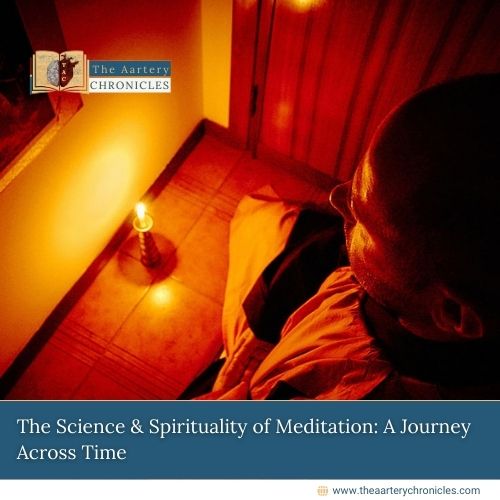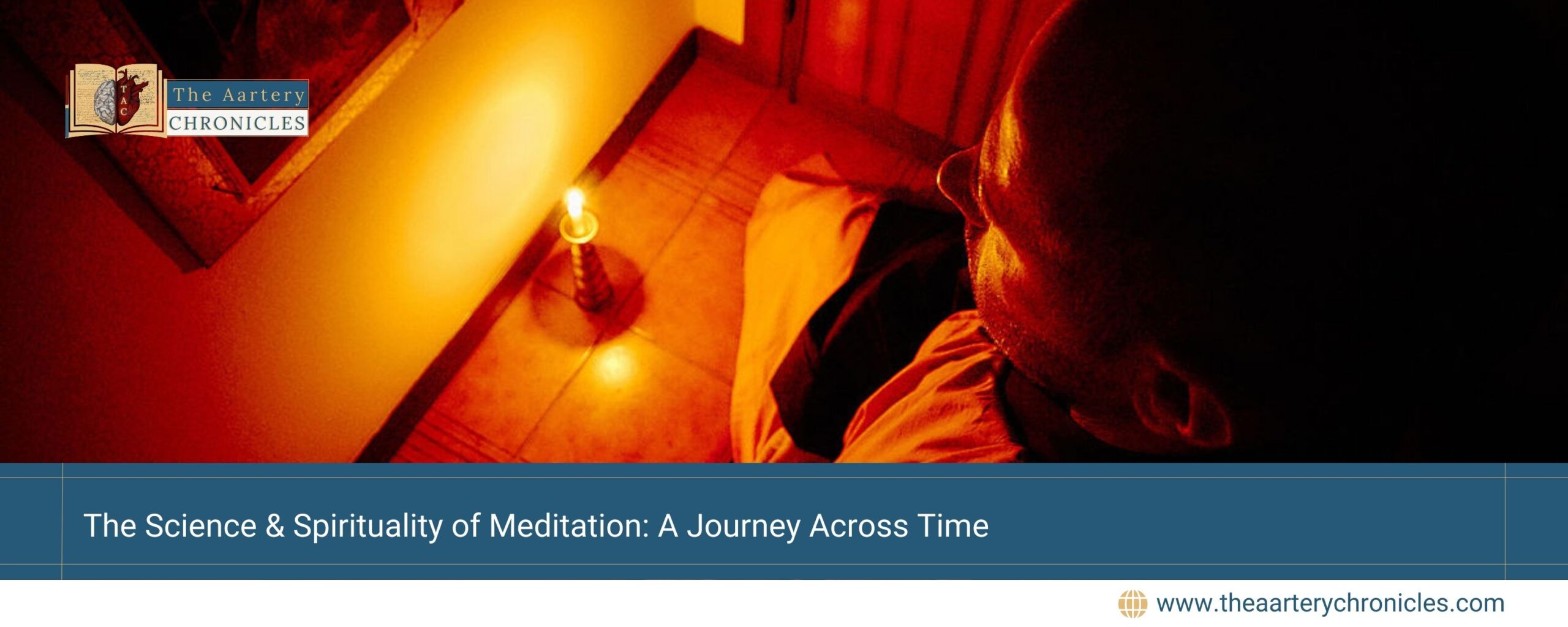

The Science & Spirituality of Meditation: A Journey Across Time
Overview
When I started to write about meditation, I found myself at a loss for words because its effects on you are unexplainable. I feel that there cannot be one universal definition of meditation because it is an experience that is highly subjective. For some, it may be a deep, immersive, and profound state of awareness; for others, it may be a connection with a higher power, whereas for some, it may mean something entirely different.
However, according to scientific definitions, meditation is a practice wherein, various techniques are involved to train awareness and attention while improving mental clarity and emotional stability. Meditation is a broad term that encompasses a wide range of different practices and these distinct practices have diverse results. [1]
Historical Overview Of Meditation
People have practiced meditation for thousands of years. It is believed to be one of India and China’s most ancient spiritual practices.
The origins of meditation can be traced back to the ancient Indian Vedic period, as described in the Vedic scriptures. [2] The Indus Valley Civilization that existed around 3300-1300 BCE has been associated with early yogic practices and meditation. Several archaeological pieces of evidence found through excavations such as the seals depict yogic postures and meditative practices.
The earliest recorded references to meditation and its several practices are found in ancient Indian texts, such as the Vedas,which may date back to around 1500 BCE. Many other spiritual texts, such as the Upanishads, which date back 800–500 BCE, also mention meditation.
Meditation And The Vedic Scriptures
The authors of Vedic scriptures: The Sruti (what is heard) and Smrti (what is remembered): are mostly unknown as there was no human author, the wisdom imparted to ancient Indian sages is said to have originated from the words of Brahma, the creator of the universe. [3] These scriptures describe various meditative techniques.
‘Dhyana’ is the Sanskrit term that translates to ‘meditation.’ It is a term implied for the seventh anga (level or limb) out of the eight-level Yoga abhyasa of Sage Patangali. This stage is believed to be the one that comes before ‘Samadhi’ or absorption. [4]
Before practicing dhyana, the appropriate steps of yoga – Yama, Niyama, Asana, Pranayama, Pratyahara, and Dharana must be practiced which are briefly mentioned in the books associated with Patanjali’s aphorisms. [4]
‘Dhyana’ word appeared in the Chandogya Upanisad for the first time, this text describes meditation as something superior, transcending even intelligence. It describes meditation as the ultimate mental activity that helps realize the Brahman “The earth, the heaven, the space, space between heaven and earth, mountains, water, the god, and human beings are seemingly meditating” (Ch. Up. 7.6.1) Several other scriptures suggest that with meditation one can realize the ultimate liberating truth. [3]

Effects of meditation on Brain
- Structural Changes: Several structural changes in the brain have been associated with meditation. Meditation can lead to an increase in the density of grey matter in various regions of the brain, such as the prefrontal cortex and the hippocampus, which are particularly important for memory, learning, and emotion regulation. [5], [6]
- Aging: Reportedly individuals meditating for years tend to have better-preserved brains as they age and meditation may significantly help manage cognitive decline associated with age
- Amygdala: The Amygdala is a part of the brain responsible for processing emotions such as anxiety and fear. Studies mention the association between meditative practices and decreased amygdala volume leading to reduced stress levels and emotional regulation.
4.Psychological impacts:
Meditation is also known for its several psychological benefits some of which may include
- Improved self-awareness: Meditation causes individuals to become more aware of their emotions, feelings, and thoughts allowing the efficient management of emotional responses promoting reduced hyper-reactivity, and fostering compassion and empathy.
- Negative thought patterns: It is believed that meditation decreases rumination or repetitive thinking and negative thoughts leading to a reduction in constant worry and depressive feelings.
- Increased overall positivity: Meditation significantly impacts overall psychological health increasing subjective well-being. It promotes positivity, happiness, and reduced stress levels enhancing life satisfaction. [5], [6], [7]
Meditation decreases stress levels, improves mood, and helps in emotional regulation. It also results in improved focus and building self-awareness.
Mrs. Prerna Thakur Sood, Clinical Hypnotherapist, Psychologist, Mind, and Wellness Coach
Conclusion
Meditation is deeply rooted in our cultural philosophies; this is a treasure of wisdom that has been passed down to us. In recent decades, people from around the world have been recognizing meditation and its effects. There has been an increased interest in research on meditation in the scientific community as well, there have been investigations that highlight its benefits for mental well-being and emotional health with overall improved cognitive function. In more ways than one, our ancient wisdom and modern science converge urging us to embrace it.
- What Is Meditation? Proposing an Empirically Derived Classification System | PubMed Central
- Meditation: Process and effects | PubMed Central
- Meditation and its practice in Vedic scriptures and early Taoism scriptures
- From meditation to dhyana | PubMed Central
- Daily home-based meditation can increase the amount of grey matter in brains of patients with mild Alzheimers disease: Study
- Neuroscience of Mindfulness Meditation | Wharton Neuroscience Initiative
- The neuroscience of mindfulness meditation | Nature







